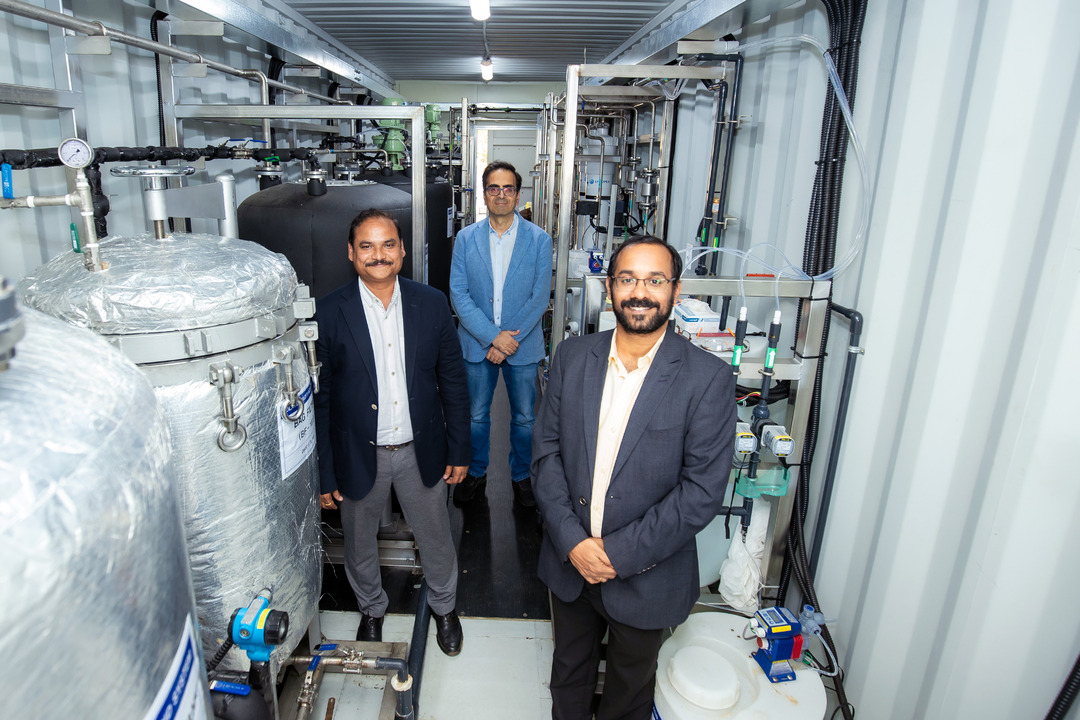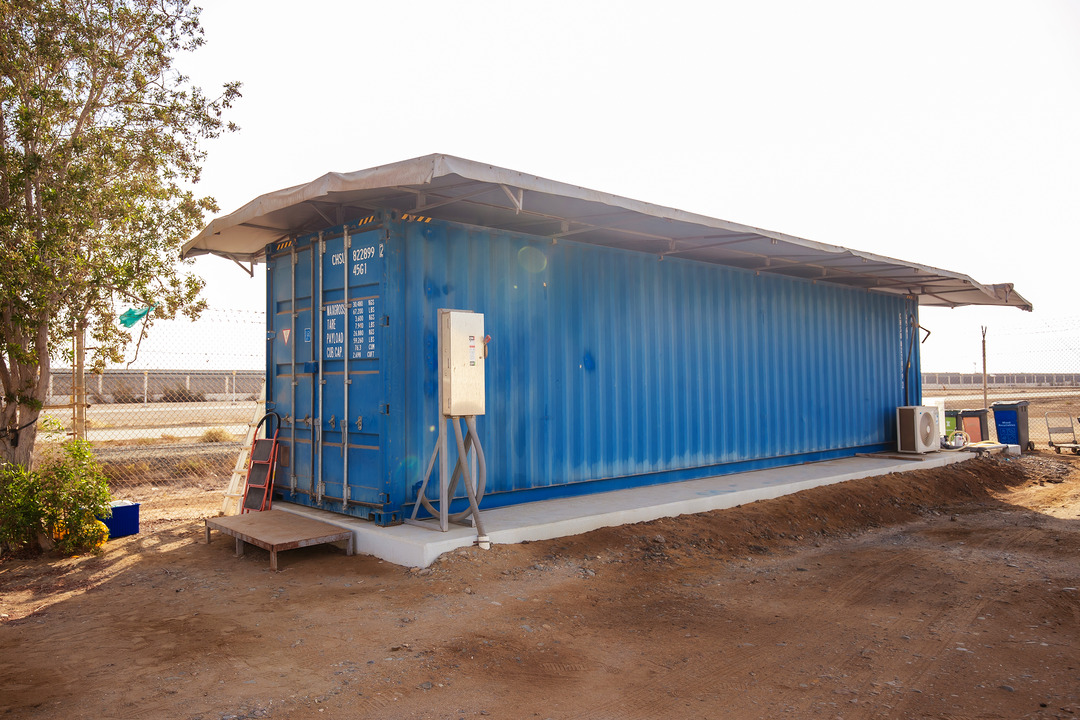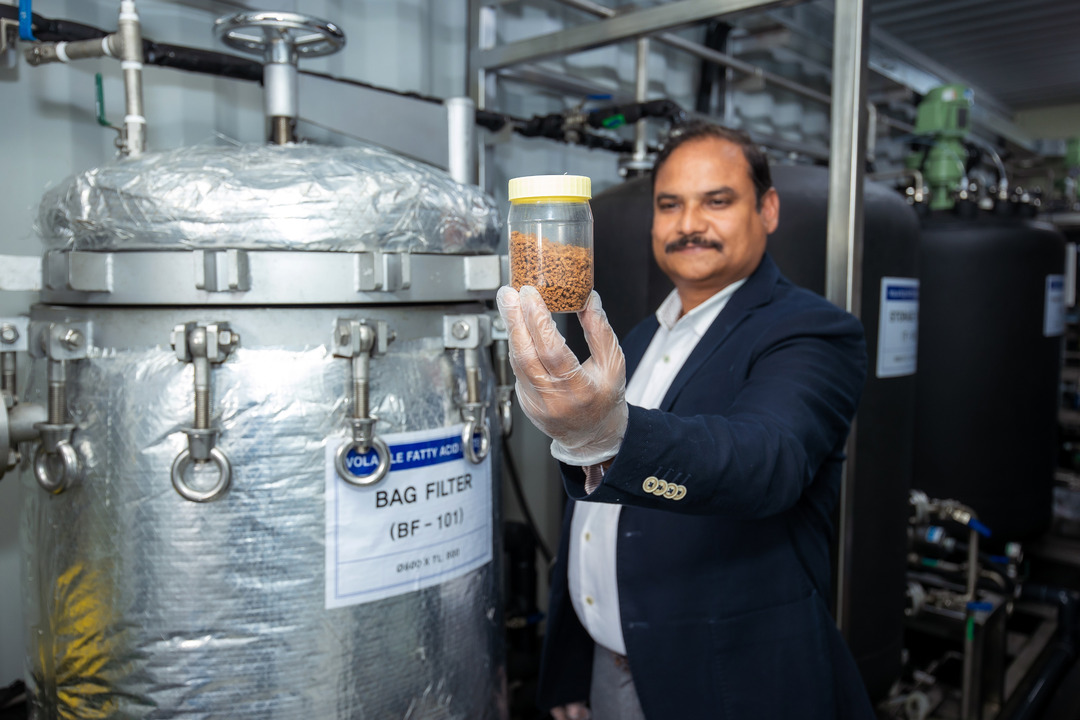Turning spoiled food waste into commercial products

Katuri, Saikaly, and Rao inside the laboratory where the recycling is happening for the pilot study.
- Saudi Arabia has pledged to divert 90% of its waste from landfills by 2040
- New technology at KAUST is sustainably recycling spoiled dairy and fruit juices into valuable products
- KAUST has launched a pilot study to demonstrate value of this technology across multiple Saudi industries
For reasons like these, Saudi Arabia has pledged to eliminate 90% of its waste dumped into landfills by 2040. And to achieve this goal, the Kingdom is in urgent need of technologies developed at King Abdullah University of Science and Technology (KAUST) that repurpose food waste into something valuable.
“Food waste is not waste,” said KAUST Professor Pascal Saikaly, “but a resource that can be converted into high-value products.” At least it is after it passes through a new recycling technology developed by him and his research team, including Dr. Bin Bian, now an assistant professor at Nanjing University (China), research scientist Dr. Hari Anada Rao, and senior research scientist Dr. Krishna Katuri.
Their technology converts expired dairy and fruit beverages into valuable chemical products that can be used for animal feed, aviation fuel, and pharmaceuticals. KAUST has just begun a pilot study to show how this innovation supports a circular economy and advances Saudi food security and sustainability.
Other countries have dealt with food waste through anaerobic degradation. Anaerobic degradation is a biological process that converts the waste into methane gas, which is then captured and used for heating and electricity. While this technique is used by multiple countries, it is not an economical option in Saudi Arabia because of the high capital investment requirements for infrastructure and the insufficient profit from methane to cover treatment costs.

The lab from the outside.
In response, Saikaly and his team conceived a way to convert food waste into something much more valuable than methane.
“We have been exploring technologies that benefit the Kingdom economically and environmentally. In the case of food waste, we realized that we could transform the waste into short-chain carboxylic acids [SCCAs] and medium-chain carboxylic acids [MCCAs],” he said.
SCCAs and MCCAs are molecules made of carbon that are used by many industries. SCCAs have a market value of around $300 per ton and are useful for the synthesis of polymers and other valuable chemicals. Paints and food preservatives are just two examples of where they can be found. MCCAs, which are produced from SCCAs through a biological process known as microbial chain elongation, have an even higher value – 10 times more. Some products depending on MCCAs can be found in several products, including cosmetics and soaps. The potential of converting waste into high value products has quickly attracted the attention of regional dairy and beverage companies who are now providing weekly more than 500 liters of waste to KAUST to test the recycling technology.
The pilot study is the result of years of research by the Saikaly lab, who used their expert knowledge in microbial engineering to convert spoiled dairy and fruit juice into SCCAs and MCCAs.
Chemically, dairy and fruit juices make an ideal waste combination. This is because the lactose sugar found in dairy and the fructose and sucrose sugars in fruit juices complement each other for the microbial chain elongation. Thus, the KAUST recycling technology needs no additional chemicals to recycle the waste.
“This unique combination creates a closed-loop system," said Katuri. "We don't need to add any external chemicals; the waste itself drives the production. Ultimately, nothing needs to go to the landfill.”
Each week, the scientists manually dump the waste into a large bucket to begin the first of three major steps. The first step produces a filtered liquid that is later used to produce the SCCAs and MCCAs and an additional viscous substance that was initially tossed away. The SCCAs and MCCAs themselves were enough to create commercial interest in the KAUST technology.
However, Saikaly and his colleagues later realized that the viscous substance contained a third valuable product – casein. Casein describes some of the main proteins in dairy products. The recovered casein holds significant promise as animal feed for the aquaculture and poultry industries. Currently, animal feed makes up 70% of the sector's expenses, in large part because so much is imported by the Kingdom.

Katuri holding casein recycled from the technology.
“Another attractive feature of the technology is its modular design,” said Rao. Waste producers can assemble and modify the technology easily on site, eliminating transportation costs for the waste, which adds to the sustainability effect.
The research done by the Saikaly team is just one of the many projects at KAUST that are converting what was waste into valuable products supporting Saudi Arabia’s efforts to build a sustainable, net-zero carbon economy.

